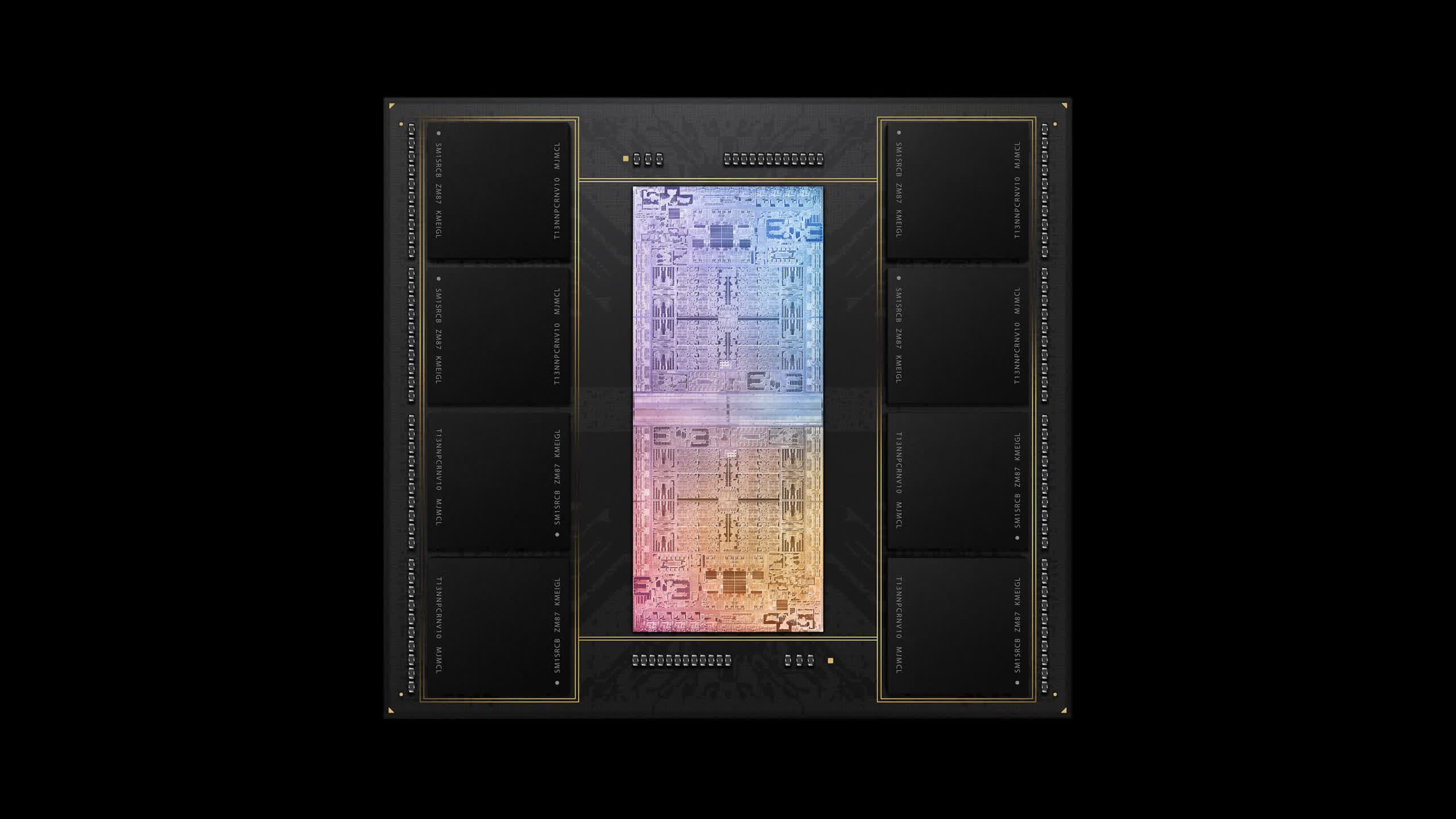[ad_1]
Briefly: {Hardware}-based safety flaws have grow to be extra frequent over the past a number of years however have largely affected Intel and AMD processors. Now, Apple joins these ranks with a just lately found vulnerability that causes Mac M-series CPUs to show encryption keys. Since it’s hardware-based, there may be little customers can do apart from protecting macOS up to date.
A just lately revealed paper describes a flaw primarily affecting Apple Silicon that permits attackers to bypass end-to-end encryption by way of a side-channel assault on the corporate’s gadgets. Anybody creating encryption software program for Macs probably must rethink their safety procedures.
The safety analysts confirmed the exploit, dubbed GoFetch, works on M1 CPUs and speculate that it probably additionally impacts M2 and M3 chips and their Professional and Max variants. Intel’s Thirteenth-generation Raptor Lake processors additionally exhibit the flaw that allows GoFetch however are most likely unaffected.
The issue lies with the info memory-dependent prefetcher (DMP) – a CPU characteristic that improves efficiency by pulling pre-cached knowledge primarily based on predictions. Fixed-time programming, which strictly controls the velocity of a system’s operations, would usually shield towards side-channel assaults. Sadly, the DMP breaks the characteristic, hobbling a significant safety layer.

The researchers instructed Ars Technica that GoFetch manipulates the DMP into leaking sufficient knowledge into the cache over time for an attacker to find out an end-to-end encryption key. All that customers can do to mitigate GoFetch is to maintain their Macs up to date. Cryptographic library builders have a couple of choices, however they arrive with drawbacks.
The nuclear possibility could be to disable DMP totally, however this solely works on M3 processors and considerably impacts efficiency. Alternatively, builders might run encryption totally on Icestorm cores – Apple’s equal to Intel’s effectivity cores – which do not run DMP, however this additionally incurs a large efficiency penalty. The identical is true of one other potential resolution – enter blinding.
In the end, limiting who can entry a chunk of {hardware} is one of the best resolution. In the long run, software program ought to achieve the flexibility to manage whether or not and the way it makes use of DMP. The researchers notified Apple of the issue late final yr, however the firm has not publicly commented. The researchers plan to launch the proof-of-concept code quickly.
The scenario remembers the substantial vulnerabilities which have affected quite a few CPUs lately, equivalent to Spectre, Meltdown, Zenbleed, and Downfall. Researchers beforehand found the PACMAN flaw in M1 CPUs and iLeakage, which may leak delicate knowledge from M-series and A-series chips – affecting macOS and iOS gadgets.
[ad_2]




